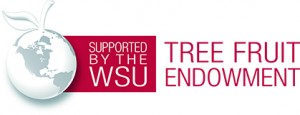The WSDA Pesticide Management Division invites you as an important stakeholder to participate in a WSDA rule-making process for the pesticide penalty assignment rules. On December 18, 2019, WSDA filed a CR-101 with the Office of the Code Reviser indicating an intent to revise the rules on how penalties are calculated for violations of pesticide laws and rules. Since discussion on this has been delayed for over a year, an updated CR-101 was reissued on September 1, 2021.
What is the current situation?
The rules on calculating pesticide penalties are found in WAC 16-228-1100 through WAC 16-228-1150. These rules have not been effectively updated since originally adopted in 1999.
A first-time penalty will start at $450 per violation if crop damage or human health is involved. The maximum penalty level of $7,500 for a first-time violation is rarely used. The penalty matrix in rule has two separate sections – one for “Adverse Effects Not Probable” and one for “Adverse Effects Probable.” The Adverse Effects Not Probable table is occasionally used for license or recordkeeping violations. Each section has four possible levels for repeat violations with minimum, median and maximum penalty options. WSDA has gone to the fourth level only a couple times since the rule’s implementation.
With some penalties, the current one-size-fits-all matrix makes WSDA’s job of assigning penalties cumbersome and difficult to explain to both violators and aggrieved parties.
Looking to the Future
WSDA would like to improve several areas of the penalty assignment rules.
- Set a minimum penalty for recordkeeping violations and other minor technical issues.
- Separate penalty assignment schedules (matrixes) for different types of violations, such as: human exposure; major crop/environmental/property damage; Worker Protection Standard violations; recordkeeping or similar minor technical violations; and maybe others.
- Increase the base dollar values of civil penalties that were set over 20 years ago.
- Create flexibility around the use of penalty fees, license suspensions or a combination of both based on the circumstances and what will serve as the most effective deterrent.
- Increase the dollar amounts for egregious violations, such as multiple human exposures or major environmental or crop damage.
- More clearly define how penalties can be adjusted within the penalty assignment schedule.
Next Steps
WSDA filed the necessary rule-making documents on September 1, 2021, so discussions can start with stakeholders on the needed changes to the penalty rules. We will be holding two general information webinars for stakeholder participation on September 16 (10:00 AM-12:30 PM) and then again on September 23 (2:30 – 5PM).
After the first two webinars, the agency will have key, interested stakeholders participate in an advisory role with several additional webinars to help revise the penalty rules. We look forward to gaining insight and feedback from both our regulated stakeholders, as well as affected parties. The three or four additional penalty rule focus meetings will be held for stakeholder input before the end of 2021.
Please contact Scott Nielsen, Case Review Officer at Snielsen@agr.wa.gov , if you are interested in participating in the upcoming webinars, or with questions or comments.
We hope to have draft rule language by the end of 2021 and file the CR-102 sometime in 2022 to hold a public hearing on any proposed changes.
Pesticide Licensing will be announcing the following:
The Licensing and Recertification Program is also revising state rules that set the testing fee structure. The rule currently limits the testing fee to $25 per session. WSDA must change this fee structure to cover the cost of computer-based testing provided by a professional third party.
Webinar Dates and Times:
Please join either the September 16th (morning) and 23rd (afternoon) webinars (both are the same) to participate as the WSDA begins the rule-making process. Additional webinars will follow to address specific discussions and develop a draft document for a CR-102 and public hearing.
Go to this link to join the webinar on the date of choice.
Fruit Matters articles may only be republished with prior author permission © Washington State University. Reprint articles with permission must include: Originally published by Washington State Tree Fruit Extension Fruit Matters at treefruit.wsu.edu and a link to the original article.
